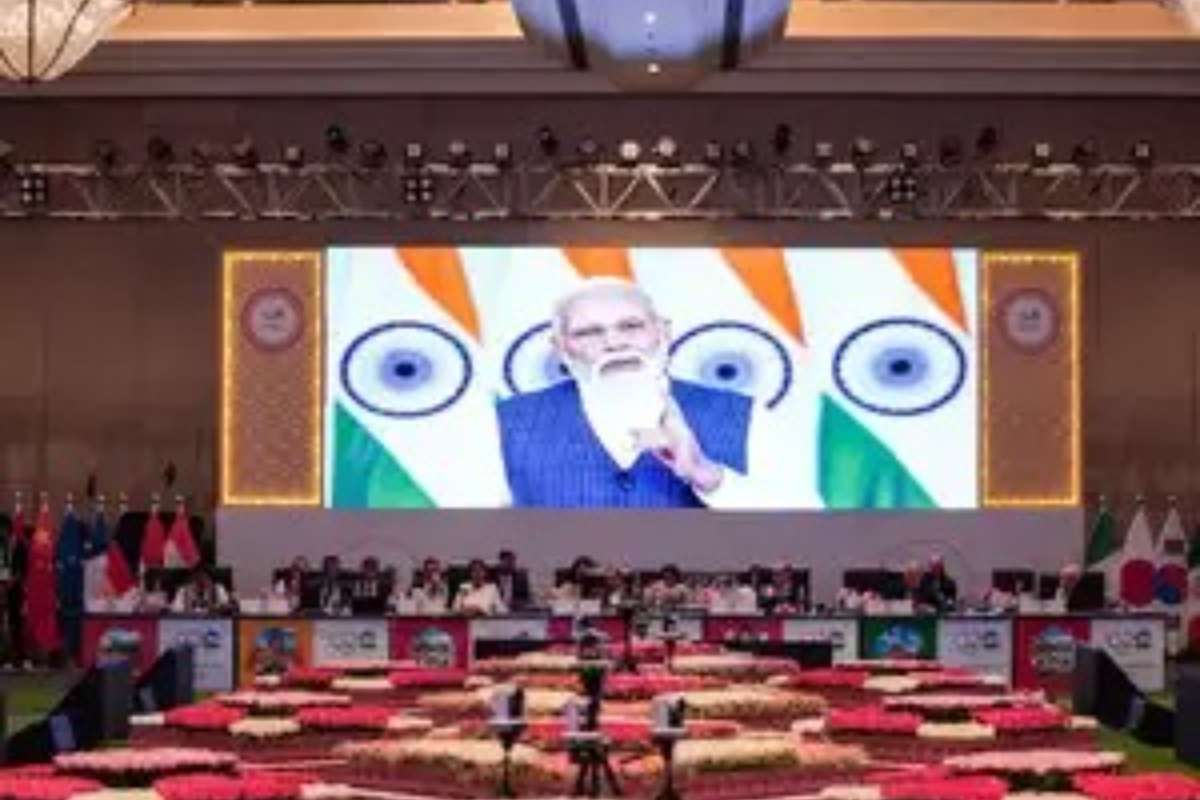
Prime Minister Narendra Modi addressing the meeting virtually
Union Minister Jitendra Singh, during a crucial G20 anti-graft ministerial meeting in Kolkata, highlighted the imperative of swift extradition of fugitive economic offenders and asset recovery.
Emphasizing the pursuit of a “corruption-free world,” Singh shared significant insights into the challenges posed by economic offenders who exploit gaps in legal and financial systems to evade justice.
Recovery Efforts and Gender Aspect of Corruption
Singh underscored the recovery of a substantial USD 1.8 billion from abroad and its repatriation to India over recent years.
Additionally, he discussed the inclusion of the “gender aspect of corruption” in the discussions. Singh noted progress in addressing gender-related corruption concerns, thanks to India’s proactive stance.
The Menace of Fugitive Economic Offenders
Singh delved into the complexities surrounding fugitive economic offenders, labeling them a critical challenge for both national and international law enforcement agencies.
“Fugitive economic offenders commit grave economic crimes in their home country and flee to another country to avoid arrest, prosecution or the execution of their sentence,” said Singh, the Union Minister of State for Personnel.
He even went on to explain the strategies these offenders employ to commit significant economic crimes within their home countries before fleeing to evade justice, thereby highlighting the need for coordinated efforts across borders to counter their actions.
Unearthing Economic Crimes
Economic crimes encompass an array of illegal activities, including fraud, tax evasion, money laundering, and embezzlement. Singh pointed out how these actions undermine the rule of law and hinder economic development, often contributing to the perpetuation of corruption.
G20 Anti-Corruption Working Group’s Impact
Under India’s leadership, the G20 Anti-Corruption Working Group (ACWG) has fostered consensus on crucial issues related to strengthening law enforcement cooperation, sharing information, and establishing mechanisms for asset recovery.
Singh commended the ACWG’s achievements and stressed the importance of bold action to address international cooperation gaps against corruption.
A Vision of a Corruption-Free World
Singh echoed the responsibility of G20 members to aspire towards a world devoid of corruption.
“We, as the G20, need to be bold in our ambition and work together to address the lacunas in international cooperation to combat corruption. I am sure that G20 members will take concrete steps to implement these principles to enhance the effectiveness of extradition mechanisms, and to facilitate better tracking of cross-border financial flows which will deter fugitive economic offenders,” the minister said.
By implementing robust anti-corruption policies and enhancing international cooperation, he expressed confidence in setting global standards for transparency, integrity, and accountability.
Corruption’s Multi-faceted Impact
Highlighting the societal repercussions of corruption, Singh noted its disproportionate impact on vulnerable and marginalized segments, particularly women subjected to coercive corruption and exploitation.
“I commend the ACWG for putting the spotlight on gender differential impact of corruption and its acknowledgment as a critical issue that requires concerted efforts by all of us,” he said.
Challenges Amid Global Turmoil
Singh acknowledged the current landscape’s challenges, including the Covid-19 pandemic, supply-chain disruptions, geopolitical conflicts, and climate-related incidents.
In the face of these obstacles, he emphasized the significance of combating corruption to restore progress and development on a global scale.
In conclusion, Singh’s participation in the G20 anti-graft ministerial meeting reinforced India’s commitment to curbing corruption and fostering international collaboration to create a more just and transparent world.

















